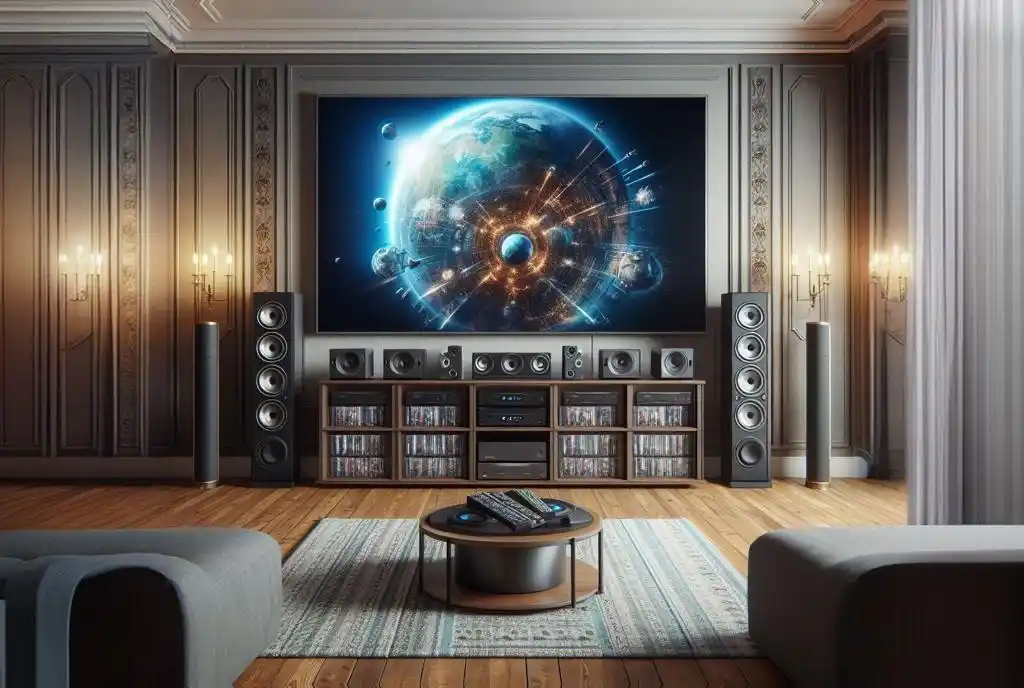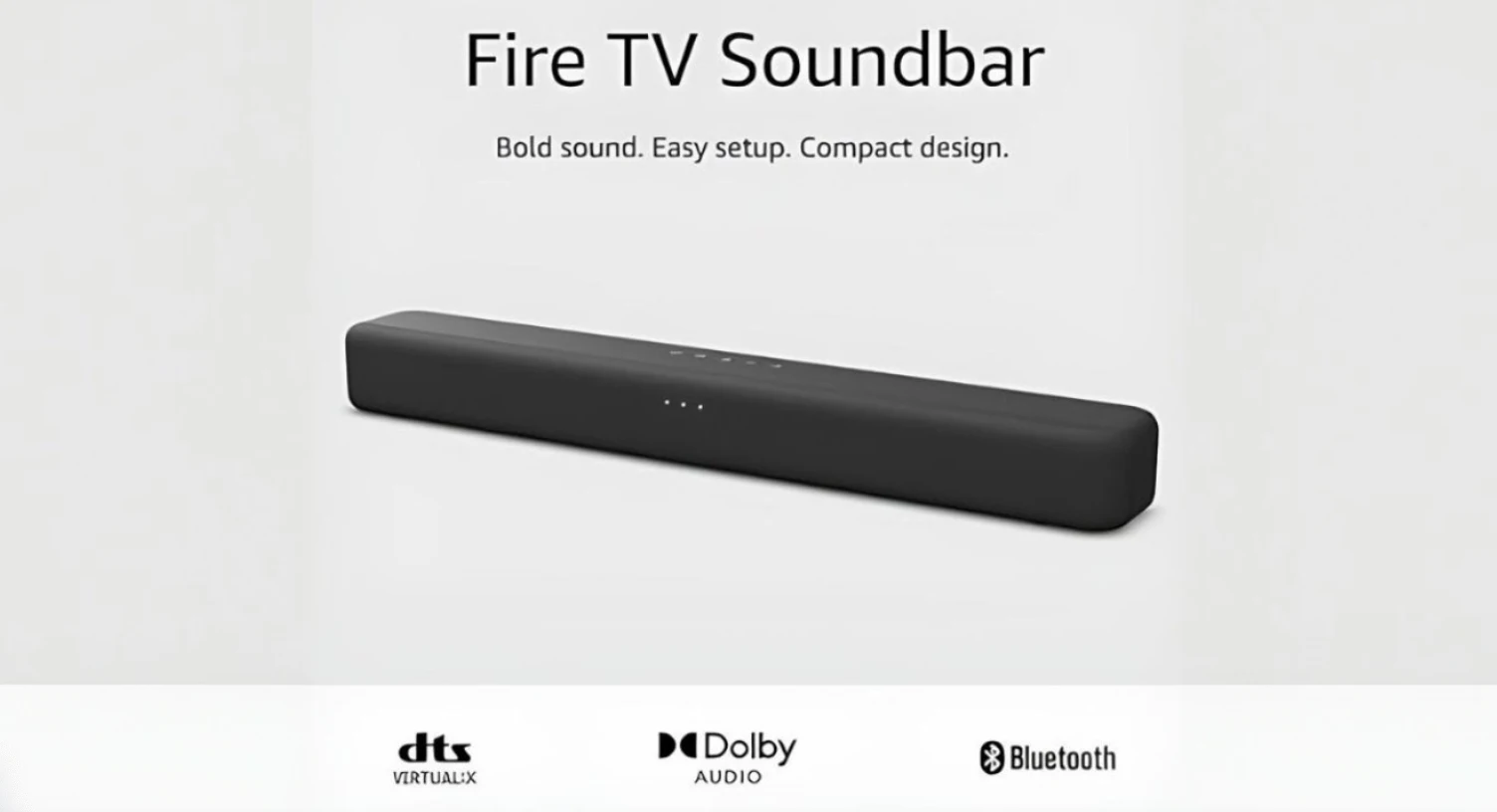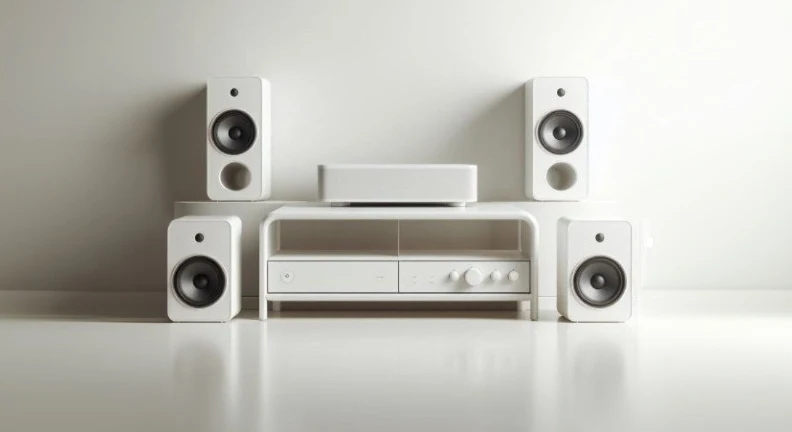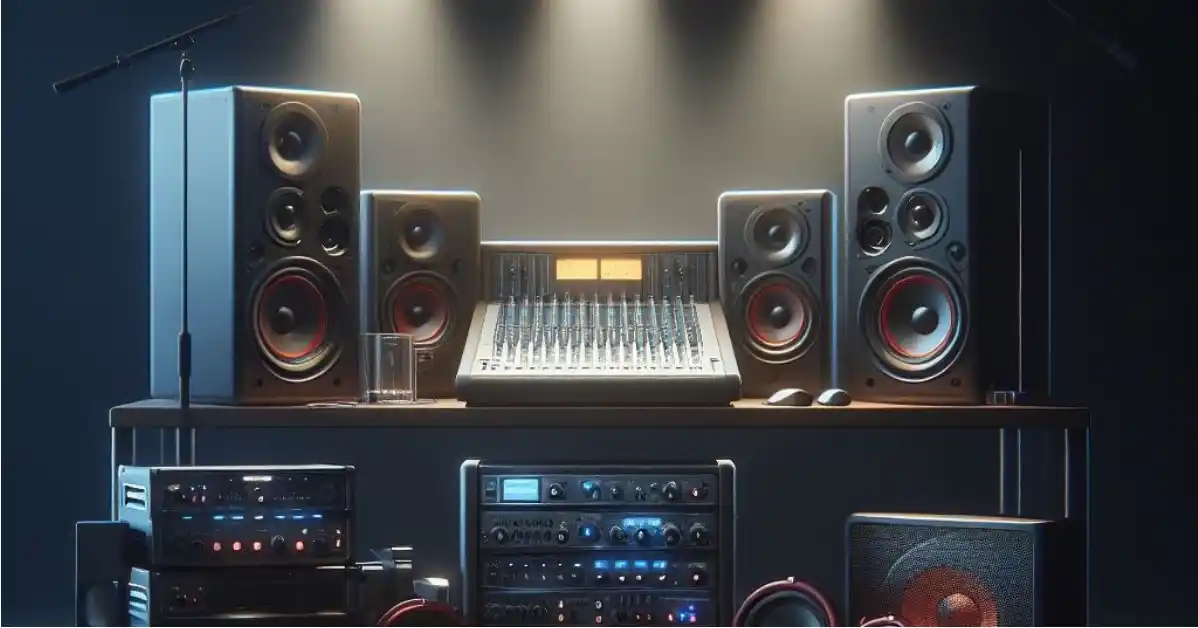Is Surround Sound Worth It? A Guide

Table of Contents
If you’re looking for a way to enhance your TV viewing experience, you might be wondering if a surround sound system is worth it. After all, modern TVs have improved a lot in terms of picture quality and features, but what about the sound?
The truth is, most TVs still have mediocre built-in speakers that can’t deliver the rich and immersive audio that you deserve. Whether you’re watching movies, playing games, or streaming shows, you want to hear every detail and feel every emotion.
That’s why investing in a better sound system can make a huge difference. But how do you choose the right one for your needs and budget? And what are the pros and cons of different options?
In this article, we’ll explain everything you need to know about surround sound systems, soundbars, and how to get the best sound for your TV.
What is surround sound and how does it work?
Surround sound is a type of audio system that uses multiple speakers to create a realistic and immersive sound field around you. Unlike stereo sound, which only uses two speakers to create a left and right channel, surround sound uses more speakers to create a front, center, rear, and sometimes overhead channel.
The most common surround sound formats are 5.1 and 7.1, which use five and seven speakers respectively, plus a subwoofer for bass. The speakers are placed in front of, beside, and behind you, to create a 360-degree sound stage. Some newer formats, such as Dolby Atmos and DTS:X, use additional speakers on the ceiling or upward-firing speakers to create a 3D sound effect with height and depth.
Surround sound systems can enhance your TV audio by making you feel like you’re in the middle of the action. You can hear sounds coming from different directions, such as a car zooming past you, a helicopter flying overhead, or a whisper in your ear. You can also enjoy clearer dialogue, richer music, and deeper bass.
What are the benefits of a surround sound system?
A surround sound system can offer several benefits for your TV audio, such as:
- Better sound quality: Surround sound systems use high-quality speakers and amplifiers to produce crisp, clear, and balanced sound. They can also handle a wider range of frequencies and volumes, without distortion or clipping.
- More immersion: Surround sound systems can create a realistic and immersive sound field that matches the visuals on your TV. You can feel like you’re part of the scene, rather than just watching it from a distance.
- More enjoyment: Surround sound systems can make your TV viewing experience more enjoyable and satisfying. You can appreciate the sound design and effects of your favorite movies and shows, and get more involved in the story and emotions.
What are the drawbacks of a surround sound system?
A surround sound system can also have some drawbacks, such as:
- Higher cost: Surround sound systems can be quite expensive, especially if you want a high-end setup with the latest features and formats. You’ll need to buy a receiver, speakers, subwoofer, cables, and possibly a sound calibration device. You’ll also need to pay for installation and maintenance, unless you’re handy with DIY.
- More complexity: Surround sound systems can be complicated to set up and operate, especially if you’re not familiar with the technical aspects. You’ll need to connect all the components, adjust the settings, calibrate the sound, and switch between different inputs and modes. You’ll also need to deal with remote controls, menus, and updates.
- More space: Surround sound systems can take up a lot of space in your room, especially if you have a large number of speakers. You’ll need to find a suitable place for each speaker, and run wires across the floor or walls. You’ll also need to consider the aesthetics and acoustics of your room, and how the speakers will affect them.
What are the alternatives to a surround sound system?
If you’re not ready or willing to invest in a surround sound system, you might be wondering what are the alternatives. One of the most popular and convenient options is a soundbar.
A soundbar is a long and slim device that contains multiple speakers in one unit. It sits below or above your TV, and connects to it via a single cable. A soundbar can improve your TV audio by providing louder, clearer, and fuller sound than the built-in speakers. Some soundbars also come with a subwoofer for extra bass, and some have wireless rear speakers for a more surround sound effect.
Soundbars are generally cheaper, easier, and simpler than surround sound systems. They don’t require a lot of space, time, or technical know-how. You just plug them in, and enjoy the sound. However, soundbars can’t match the true surround sound quality and immersion of a dedicated system. They can only simulate the surround sound effect by using digital processing and reflecting sound off the walls. They also have less power, range, and customization than a surround sound system.
How to choose the best sound system for your TV?
The best sound system for your TV depends on several factors, such as:
- Your budget: How much are you willing to spend on your sound system? You can find soundbars and surround sound systems at various price points, from under $100 to over $1000. Generally, the more you pay, the better the sound quality and features you get. But you also need to consider the value and performance of each option, and how it fits your needs.
- Your room size and layout: How big and spacious is your room? How much space do you have for speakers and wires? How are the walls, furniture, and other objects arranged? These factors can affect the sound quality and placement of your sound system. For example, if you have a small or crowded room, you might be better off with a soundbar than a surround sound system. If you have a large or open room, you might need a more powerful and immersive sound system.
- Your TV size and model: How big and advanced is your TV? What kind of audio outputs and formats does it support? These factors can affect the compatibility and performance of your sound system. For example, if you have a small or old TV, you might not need a very fancy sound system. If you have a large or new TV, you might want a sound system that can match its picture quality and features.
- Your personal preference and usage: What kind of sound do you like and need? What kind of content do you watch and listen to? These factors can affect the choice and settings of your sound system. For example, if you like loud and bass-heavy sound, you might want a sound system with a subwoofer and a high volume. If you watch a lot of movies and games, you might want a sound system with surround sound and 3D sound formats. If you watch a lot of news and shows, you might want a sound system with clear dialogue and balanced sound.
Conclusion
A surround sound system can be worth it if you want to get the best sound quality and immersion for your TV. However, it can also be costly, complex, and space-consuming. A soundbar can be a good alternative if you want to get a better sound than your TV speakers, without breaking the bank or hassle. Ultimately, the best sound system for your TV depends on your budget, room, TV, and personal preference.




